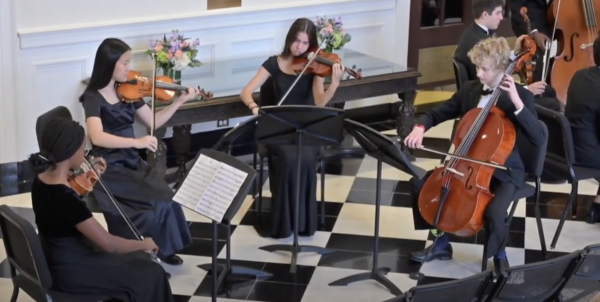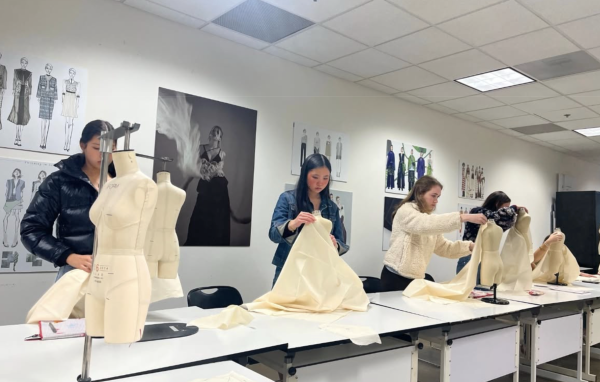Art JanTerms provide students with new opportunities
While there are many well-known and popular JanTerms such as “Physics of Flight,” one category shines among the rest: art. These classes supplement the ample selection of electives during the regular school year where students can pursue their passions, both in performing and non-performing arts.
Classes such as “Music and the Movies” offer a curriculum pertaining to a more selective audience, rather than offering a broad overview of music. According to the course catalog, students are required to have “[a] basic level of music knowledge including listening familiarity with orchestral instruments; basic proficiency in at least one instrument or voice.” These requirements allow experienced students to take a more advanced class closer to the higher level of difficulty.
“We are looking for students that self-identify as having a musical background,” said Scott Stewart, one of the teachers of the course. “What is not helpful are students that cannot participate in class discussions without introduction. This requirement allows us to get into the discussions immediately, saving precious time.”
When asked to explain the class, Stewart clarified that his class is meant to explain “media, which is a common element in almost everyone’s lives, so having an understanding of how those things manipulate those things is important.”
The class begins with a historical survey of music in movies beginning in the 1890s to the present, then follows up with a trip to Los Angeles, where students can have interactions with real composers, explore museums and studios, and much more. Finally, they launch into the final stage of the course, a presentation in which students are asked to pick three scenes from a movie and analyze them from a musical perspective.
Stewart also mentioned the time allotted for the regular bands and orchestra to practice. While he is unhappy with the time allotted, he understands the complications.
“We want our students to go out,” said Stewart, “but we want them to come back, so we do our best to find time, but understand that the schedule may not allow a lot of time for us to rehearse.”
Junior Benjamin Egan, a student involved in the “Music and the Movies” class, also had valuable input on the course.
“Something I think what is so similar about JanTerms is the immersive part,” said Egan. “In this JanTerm we are learning about composers, musical vocabulary, the instrumentation, and then you actually get to go to LA, so we got to see [composers] record some of the music.”
Although some JanTerms do not allow beginners or unexperienced students into their rosters, there is still a diverse range of JanTerms to choose from. Classes such as “Folk Art,” “Experiencing Atlanta,” and “Welding” all have no prerequisites yet still offer engaging material and unique experiences.
“Each of these places has changed their communities in some way, shape, or form,” said freshman Will Batelaan, a student in the “Experiencing Atlanta” class, “and reflect attributes of their community based on what they do. We did more practice and interactive games while there and then created a reflection on how it went.”
“Folk Art” focuses on the everyday art of the south. This class discusses the powerful movement which self-taught African American artists created in their time of oppression. Described as the visual equivalent of the blues, folk art has become a part of the south. This class included overnight field trips to a civil rights themed outdoor art environment and day trips to multiple museums.
On the other hand, the welding class allows the average student to learn safety and become familiar with power tools and is another example of a more hands-on experience. Students learn how to weld metal and eventually focus on creating appliances for gardens, providing another example of the immersive art JanTerms which Westminster offers.
These JanTerms allow students to become more familiar with a subject they already know and love or to gain interest in a new subject, igniting a passion following them throughout their lives. Such classes have often been described to represent culture and community.
Art tells stories which word itself could never capture or explain. The ability to practice, experience and understand it is a precious gift, made possible by the diverse number of choices available to students.



